What Is it Like to Do Undergraduate Research at UNH?
What does it mean to do undergraduate research? What can you learn from undergraduate research opportunities at UNH?
Meet Jordan Christian '25, an environmental sciences: geosystems major and learn more about what excited and challenged her while conducting research on magma assembly during continental rifting in the Alps of France as a UNH undergraduate!
learn more about undergraduate research at UNH
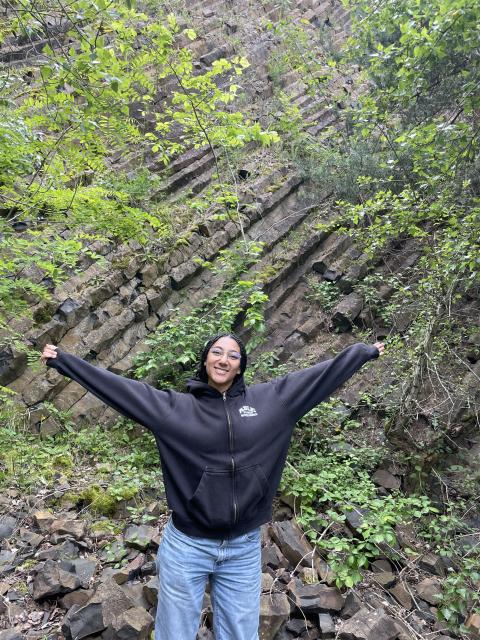
Me standing below the lava pool where the cooling direction is visible
What is your research about?
My research is titled Magma Assembly During Continental Rifting: Insights from the Limagne Graben and the Chaîne des Puys. I conducted research through the Hamel Center for Undergraduate Research's International Research Opportunities Program (IROP), which allows students to conduct summer research abroad. I focused on the area of France where the volcanic chain is present and where a rift (or break that formed in the continental crust) appeared from the Alps formation! The Alps had pulled the crust so far and hard during their formation eastward, which allowed for the magmas to come up and create this region.
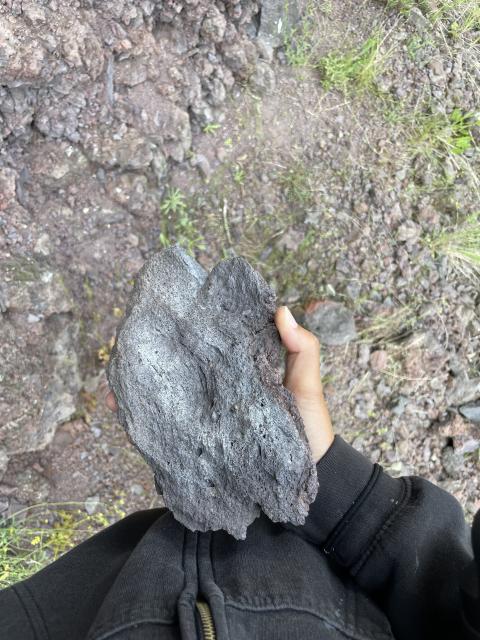
This is me holding a lava bomb from the sampling site, made up of hot lava that cooled through the air as it was ejected from the mouth of the volcano. Air pattern lines are visible, as well as crystals caught in the melt.
What did you learn by conducting your research?
I learned a plethora of new things by conducting research, not just about the processes in the field but also about myself. I was taught how to determine clear crystal samples out in the field, use the Laser Ablation Inductively Coupled Plasma Mass Spectrometer (LA-ICP-MS) and use the Electron Probe Microanalyzer (EPMA). I will constantly be using these tools, and others like them, in future research projects.
When you sample different kinds of rocks, you have to be aware of any external effects that may have happened to these rocks and ask questions such as: Are there any missing pieces? Are there any signs that these may be tampered with from nature via weathering, hydrothermal activity, etc.? Is this an appropriate size? Are there enough visible crystals in this sample to use it? Are we sure this rock is native to this area and wasn’t brought in by external forces?
Being away in France also helped me understand more of my language learning struggles and ways to become more social! I plan on moving away from New England after graduation, so the social skills I’ve learned there will definitely help me make more friends in the future.
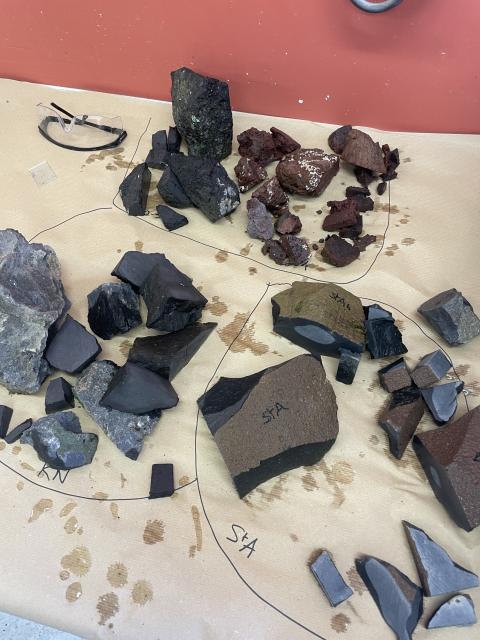
All collected samples on the saw table after being sliced into smaller sizes
What was the best part of your research project?
The best part of this project was being partnered up with my international mentor, Dr. Martin Guitreau, at the Laboratoire Magmas et Volcans (Université Clermont Auvergne, Clermont-Ferrand, France). Dr. Guitreau dedicated multiple hours of his time to teaching me, providing me with a ton of sources to read and understand and even helping me with my poster and conference abstract! He always brought a ton of energy and multiple hands-on interactions to my learning, and as a visual learner, there is nothing better than that.
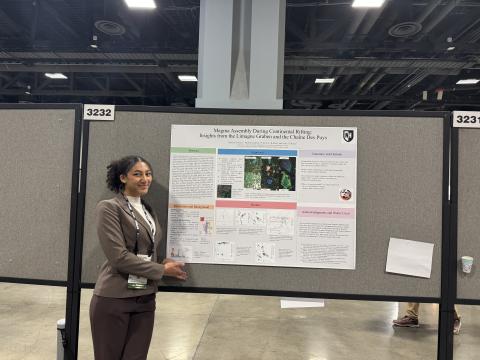
Me presenting at the American Geophysical Union in Washington, D.C. on December 12, 2024
What was the most challenging part of your research project?
The most challenging part of this experience was the ability to work with the machines myself. Our measurements were done out of order, and I manually went in and processed my data from the LA-ICP-MS prior to the EPMA, as the values from the EPMA are crucial in understanding the strength of the MS results. I spent a ton of hours on Excel, learning different shortcuts, patterns and equation writing.
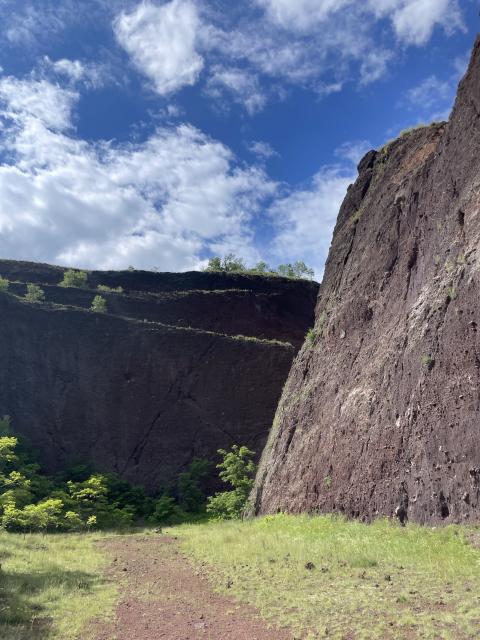
A scoria sampling site at Puy Corent consisting of volcanic ash deposits and small crystals
How did you prepare to present your research?
I did lots of reading about the Chaîne des Puys and high-temperature igneous crystal types to prepare for my poster presentation at the American Geophysical Union Annual Meeting in Washington, D.C. My advisors both at UNH and abroad met with me to create a plan and we started drafting up a poster idea online so we could all go in for tweaks and feedback.
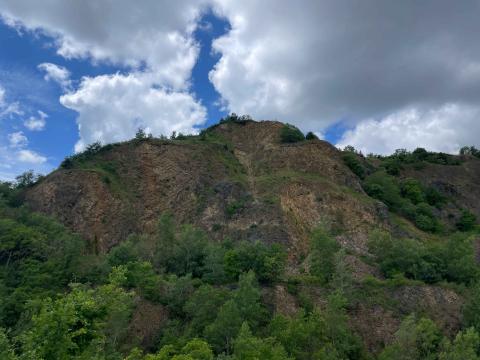
A prior lava pool at Puy-Saint-André
What's next for you?
I am presenting my research again at the UNH Undergraduate Research Conference this April, which I’m super excited about. After that, graduation is right around the corner, and I’ll be off to graduate school!
learn more about undergraduate research at UNH
related posts:
My Top 5 College Experiences
Jordan's favorite college experiences include an earth sciences field trip to the U.S. Southwest and a Flo Rida concert in the Whittemore Center Arena. read more about Jordan